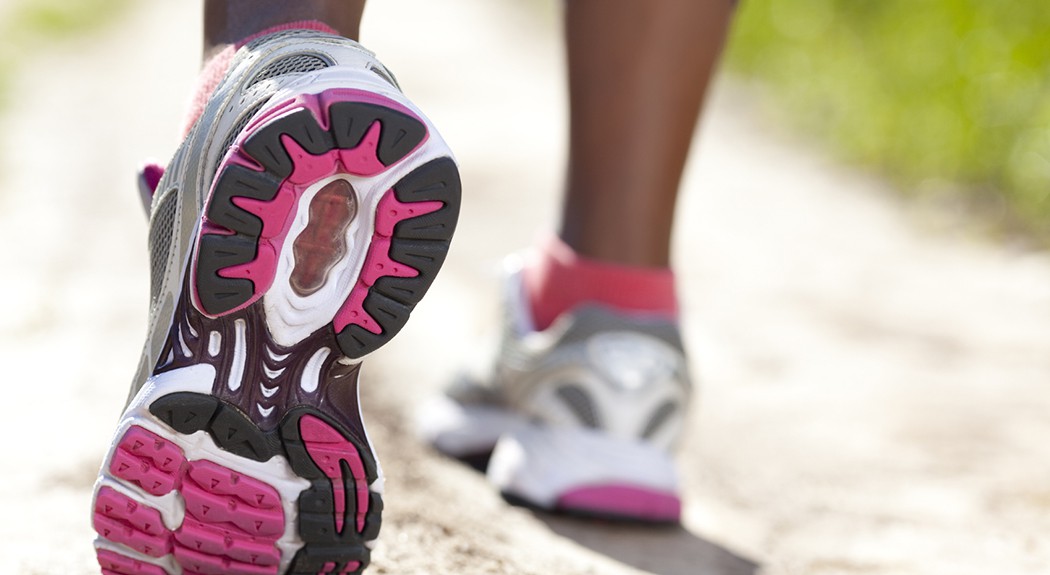Whether you are a marathon runner or just on your feet a lot, a good pair of shoes is your greatest asset. Just ask David J. Keblish, MD, an orthopedic surgeon at Anne Arundel Medical Center.
During a deployment in Afghanistan in support of Operation Enduring Freedom, the retired Navy Captain says his best piece of gear was his trail-running shoes. “They were very durable and stiff, and held up well in that environment,” says Dr. Keblish.
In the world of shoes and orthotics, Dr. Keblish says there are three types of feet: high-arched, flat-footed and neutral. If you are one of the extremes—high-arched or flat-footed—finding the right pair of running shoes is especially important.
-
High-arched

Those with high arches should look for shoes with extra cushioning, because these feet do not absorb shock as well.
-
Flat-footed
 People with flat feet, or fallen arches, should look for shoes with motion control or stability. Lower arches mean the bones and tissues in the foot endure more stress, and the stiff soles of these types of shoes help support them.
People with flat feet, or fallen arches, should look for shoes with motion control or stability. Lower arches mean the bones and tissues in the foot endure more stress, and the stiff soles of these types of shoes help support them.
-
Neutral

Dr. Keblish says most people fall into the neutral category and have fewer specific needs, but can still benefit from buying a pair of shoes that is both stiff and supportive.
People with flat feet, or fallen arches, should look for shoes with motion control or stability. Lower arches mean the bones and tissues in the foot endure more stress, and the stiff soles of these types of shoes help support them. Those with high arches should look for shoes with extra cushioning, because these feet do not absorb shock as well.
“The shoe should not be ‘zero-drop,’ meaning the heel should be raised a little to put tendons in a better position,” says Dr. Keblish. “You should also have padding for your whole foot.”
If you already have a pair of running shoes you cannot bear to part with, over-the-counter orthotic insoles can be helpful. But, Dr. Keblish adds, only people with extreme foot conditions, such as chronic heel spurs or arthritis, need to consider custom orthotics.
If you are not sure what type of foot you have, Dr. Keblish recommends going to a running shoe store where salespeople can evaluate your feet. Or, he says, there are plenty of websites that can help you evaluate your feet on your own.
 David J. Keblish, MD, is an orthopedic surgeon with AAMG Orthopedic and Sports Medicine Specialists. He can be reached at 410-268-8862.
David J. Keblish, MD, is an orthopedic surgeon with AAMG Orthopedic and Sports Medicine Specialists. He can be reached at 410-268-8862.



